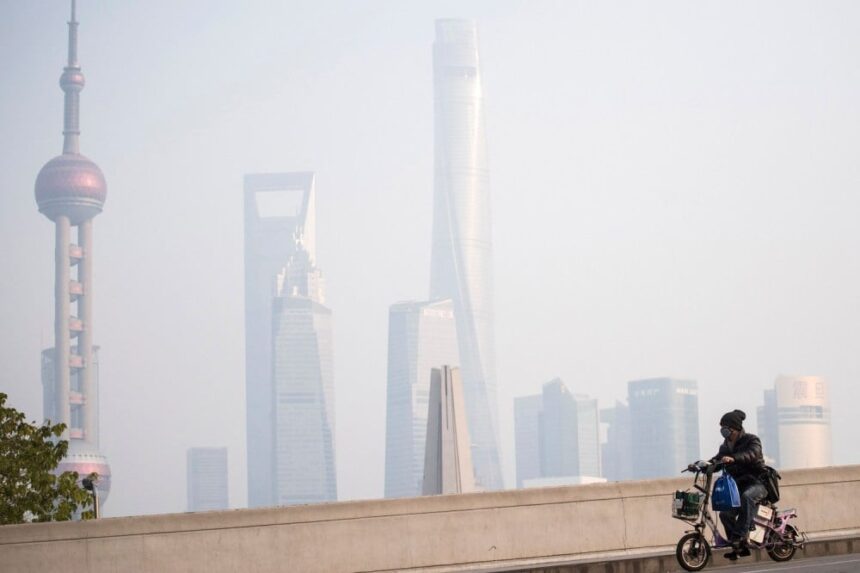Summary by Geopolist | Istanbul Center for Geopolitics:
The article from Foreign Policy on China’s economic future discusses various perspectives on its growth and position as a global power. Key points include:
- Economic Growth and New Drivers: China’s economy, despite slowing growth rates, continues to play a significant role globally. In recent years, growth has been driven by emerging industries such as artificial intelligence, digital financial services, and green technologies, including electric vehicles. Experts believe these sectors are crucial for sustaining economic momentum in the future.
- High-Quality Growth: Chinese leadership emphasizes a shift from high-speed to high-quality growth. This involves focusing on advanced technologies and upgrading traditional sectors. High-quality growth is considered essential for long-term economic stability and involves sectors like semiconductors and renewable energy.
- Geopolitical Challenges: Despite a positive outlook, China faces significant geopolitical headwinds, particularly from tensions with the United States. These tensions can hinder economic opportunities and growth, especially for developing economies that rely on open global trade relations.
- Global Impact and Cooperation: China’s economic policies and growth have a substantial impact on the global economy. The country’s commitment to opening up and fostering international cooperation is seen as beneficial for global economic stability. China’s role in global supply chains, especially in technologies like electric vehicles and solar panels, underscores its importance in the international market.
Overall, while China faces challenges, its strategic focus on high-quality growth and new technological advancements positions it as a critical player in the global economic landscape
Read more below.
China Is Neither Collapsing Nor Booming
I felt a sense of relief last week when I got into the hired car that would take me to my hotel after arriving at Shanghai Pudong International Airport, exhausted and a little disoriented after a long flight from New York.
I felt a sense of relief last week when I got into the hired car that would take me to my hotel after arriving at Shanghai Pudong International Airport, exhausted and a little disoriented after a long flight from New York.
Pushing back my seat to adjust for my height and leaning back to relax, I asked the driver about the manufacturer of the impressively upholstered vehicle that pulled away quietly from the curb. Jianglai, he said to my surprise. As a Chinese speaker, I knew this word meant “the future.” This was not just a trademark but a metaphor.
China is suddenly awash in spiffy electric vehicles built by companies, such as GAC Aion and BYD, that most people in the rest of the world have never heard of. It’s just one of the countless modernizations that the country has boasted this century, from the world’s largest high-speed rail network to new airports and subway systems. Many travelers to China are sometimes prone to overreading these surface-level changes by seeing them as signs of China’s destiny to lead the world in the 21st century.
The danger for me is the opposite. As someone who lived in Shanghai and traveled throughout the country during most of the 2000s—arguably its fastest-modernizing decade—and has regularly visited ever since, I have to be on guard against being too blasé or even jaded about the new infrastructure and other visible changes.
So, 10 or 15 minutes into my ride, just as I thought I might drift off, I was startled to realize I was not on the normal and familiar highway into the city, the one with the ultra-fast magnetic levitation train whose elevated track hovers above the median. Wait, I wondered, could it be that Shanghai has just built a second glistening expressway into town? Suddenly restless, I asked the driver, who said no, this was just the toll-free alternative. The highway was not another example of an economic miracle. I had just never taken it before.
I’ve had many conversations during my stay here, and through them I have been reminded, not for the first time, that neither perspective—starry-eyed or jaded—is warranted when thinking about China. Some of them have been with foreigners, including scholars and businesspeople. Although there is a growing tendency among outsiders to discuss China’s growing challenges––a slowing economy, a rapidly aging and now shrinking population, a style of politics that seems deeply resistant to change, and an increasingly tense and competitive geopolitical environment––the foreigners I’ve met by and large seem to believe that China still has considerable wind in its sails to achieve greater economic growth and global power.
Another set of conversations—more numerous and interesting to me—has been with young Chinese people, most of whom are well educated and ambitious. With both of these groups I am making generalizations, but what has struck me about the latter is how worried they are about their futures. Many of them see China’s golden era, which peaked in the 2000s and 2010s, as firmly in the past. And they brim with doubt about whether the country’s model can continue to offer opportunity for economic advancement and personal fulfillment on anything like the scale that it did in recent decades. (For a quantitative sense of these past achievements, I suggest a recent column of mine in which I discussed a new book by the sociologist Wang Feng.)
“I am so worried,” one young man told me in a conversation that echoed a score of others I had. “It is really, really difficult to find good jobs nowadays. The competitive pressure on people in their teens and 20s is crushing. At the same time, life has become very expensive. This makes so many of us, like me, want to leave the country. That’s what most of my friends would like to do, too.”
There is strong, if anecdotal, evidence that emigration has increased lately among young, talented, well-educated, and wealthy people from China. Recent scenes from the U.S.-Mexico border have shown something very different from the historic picture of Chinese emigration, which was traditionally driven by the rural and urban poor. TV and print interviews nowadays of Chinese people who “zouxian,” or cross the border into the United States, show a high rate of middle-class individuals who often already speak English, a telltale sign of years of education.
There are plenty of signs that Beijing is becoming worried about this. For example, it has recently begun, at least on a limited scale, to cooperate with Washington in accepting the repatriation by air of its citizens caught trying to immigrate illegally. China is, of course, concerned about the brain and money drain that this emigration represents, but one suspects it is also unsettled about the political implications: the lack of confidence in the country’s direction and governance that is causing people to vote, as it were, with their feet. Mind you, to zouxian migrants, this is happening at considerable expense as well as personal hardship and danger as they cross the jungles of South and Central America to reach the United States.
The other main type of conversation I’ve had has been with Chinese scholars, who have brought up the increasingly stark tensions between China and much of the developed world, especially the United States. One of them surprised me by remarking that in the postwar era, the history of attaining high-income status has been largely confined to countries that maintain a positive relationship with the United States. This young academic wondered out loud if Beijing has not made a fundamental mistake in failing to preserve better relations with Washington.
Throughout this discussion, I tried to play devil’s advocate, first by saying that tensions between the two countries were not only the product of Beijing’s behavior—far from it. I added that many in the West fail to understand how unremarkable it should be that China wants to be a first-rank or even preeminent power—a topic I covered in my 2017 book, Everything Under the Heavens. In short, China boasts roughly one-fifth of the world’s population (versus a little more than 4 percent for the United States), and for most of its history, it had the world’s largest and, in many ways, most advanced economy. The young scholar was unmoved, saying: History be damned—I’ll take better diplomatic tactics anytime.
In the final of these conversations, I asked a much older Chinese scholar about the mounting tech war between the two countries, in which the United States has been seeking to limit China’s access to the most sophisticated microprocessor manufacturing equipment, advanced graphics chips from companies such as Nvidia, and artificial intelligence technologies.
The scholar said the West badly misunderstands China, underestimating its preoccupation with its standing in the world. This will only push Beijing to strive harder to build these technologies on its own—and ultimately prevail. He clarified that he was not predicting that China would win across the board. The point he left me with was that any perceived antagonism from the West will feed Beijing’s preexistent desire to lead in every field that it thinks matters.
This, he said, will lead China to double down on industrial policies and state-driven investments. Many of these will prove misguided or inefficient in the long run. But in a country of China’s size, with enormous resources not only in national wealth but in human talent, many will also succeed, giving its Western competitors all they can handle over the next few decades. All I can say with certainty is that we are all in for a turbulent, costly, and possibly dangerous ride.
Source: Foreign Policy







